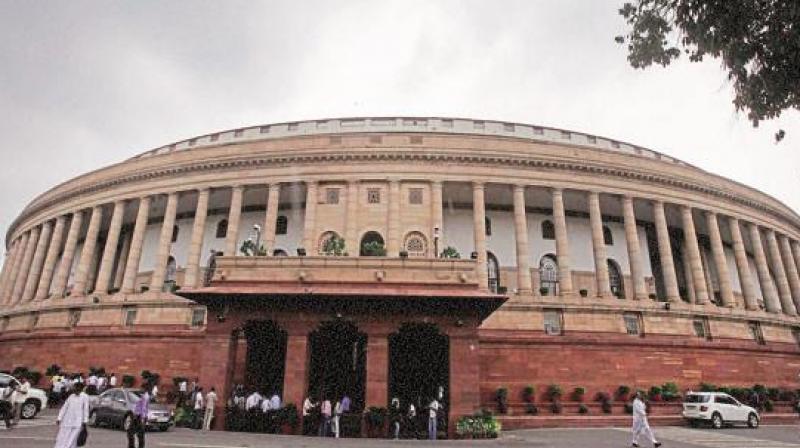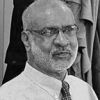A celebration of democracy: For whom, and how?

With the 17th Lok Sabha elections fast approaching, we increasingly hear them described as a “celebration of democracy”! It very well might be so, but for who and how still remains to be explained.
This reminds me of a tale from the Mahabharata, when many years after their victory in the great 18-day war, King Yudhishtra decides to perform the Ashvamedha Yajna at Hastinapur. A great feast was prepared and then an interesting incident took place. A mongoose entered the kitchen and after helping himself to the food, began to laugh uproariously. It was apprehended and taken to the King, who asked for an explanation for this outrageous behaviour?
The mongoose narrated the story of a poor brahmin family, which after having starved for a week had found some grain. Just as they were getting ready to eat, a mendicant knocked on the door and asked for food. He kept asking for more, and finally the lady of the house served him with all of it. A few morsels were still left in the dishes and our friend, the foraging mongoose, helped himself to them. And lo and behold, that food was so blessed that he began to turn golden. But it was not enough to turn all of him golden.
And ever since then, the mongoose said: “I have been going from puja to puja, and from yajna to yajna in small and great homes, hoping to find food that will turn the rest of my body golden. Even your food, Great King, is not blessed enough to do that! That’s why I am laughing.”
The ordinary Indian’s experience with democracy is pretty much the same. More than 70 years ago a frail old man in a loincloth, steel-rimmed glasses and a staff in hand had turned us half-golden. Independence gave us freedom and equality, and above all hope. We have since then been through 16 general elections, 16 celebrations of democracy and the hopes still remains unfulfilled. Perhaps they never will be? Perhaps democracy is only a halfway house? Perhaps we have distorted our democracy?
According to Aristotle, the underlying principle of democracy is freedom, since only in a democracy can freedom be shared. There are two aspects to freedom — being ruled and ruling. And since everyone is equal, numbers matter.
We in India have equality in the sense implied in a democracy. We have periodic free and fair elections — at least reasonably free and fair, an independent media, an independent judiciary and all of us enjoy all the freedoms we believe to be essential to be a free people.
But why then are we unhappy with the system of government we have? To begin to understand this, we must first understand what kind of a democracy we have evolved into.
We were intended to be a hybrid democracy, combining direct democracy at the local levels and representative democracy at the regional and national levels. To facilitate the installation of a direct democracy at the lowest levels, we needed to dismantle the traditional institutions of local government. While in most parts of the country institutions such as the Khaps, Jaati Sabhas and Gaon Sabhas continue to stubbornly exist, their powers and influence has been considerably whittled down by state systems in anticipation of a new system of government called the panchayati raj, a system based on elections by equals and not based on tradition and birth. The panchayati raj system never did take root. As a matter of fact, local government even in the cities never took root. The distribution of salaries tells this tale vividly.
Out of a total national expenditure of almost Rs 5,00,000 crores each year on salaries and pensions, the central government distributes almost 42 per cent, the state governments almost 47 per cent and all the nation’s local governments only 11 per cent.
Now what happened? Though the founders of this republic never used the term “political party” even once in the Constitution, from day one we were intended to be and are a party-based democracy. When people elect representatives they are in fact choosing parties. And now we are increasingly electing a supreme leader.
How parties function then becomes critical to our democracy. If parties did not function or are not required to function in a prescribed constitutional and democratic manner, the leadership inevitably migrates into the hands of an elite, as we have seen in almost all
our political parties now. These political parties now have factions that come together on the basis of a shared region, religion or caste, with any one of these impulses being the dominating motive for coming together.
We have seen the transition of democratic styles in many of the world’s established democracies. The United States saw power passing from a self-nominating convention nomination process to a primary-based system that binds the convention to the choice of individual party members. This kind of a transition did not happen in India. On the other hand, we migrated from a system where parties consisted of equals sharing a common purpose and sometimes goals to one where power passed into the hands of a self-perpetuating political aristocracy.
This system is in fact akin to the democracy of the Kouroukan Fouga of the great Mali Empire, where clans (lineages) were represented in a great assembly called the Gbbara. We had a similar system in the form of the Loya Jirga in Afghanistan. Even the Licchavi democracy in the post-Magadhan period was akin to this.
Clan democracies are implicit with concentration of power with a very few and the manifestation of dictatorial tendencies. The bottom-up system thus transforms itself into a top-down system. Power then flows from a position of power. There is another consequence to this. When we have a clan democracy, issues pale and the capture of power becomes the sole driving force. Since issues have to be dealt with, we quickly get an ideological consensus, as we see in India now. The clans are quite satisfied with a system that gives them a share of the power and the pelf that goes with it.
This has happened in India and unfortunately most social scientists have not seen in it a failure of democracy. That’s why what Che Guevara said in 1961 in Uruguay is relevant here: “Democracy cannot consist solely of elections that are nearly always fictitious and managed by rich landlords and professional politicians.”
The lack of intelligent and sensible debate in Parliament portends bad days for our democracy. Even the relatively few who care to attend Parliament seem to be increasingly doing so more with the intention of making propaganda by deed by taking resort to unparliamentary, mostly unsavoury, ways. No party is blameless.
A state that ignores the majority, especially a needy majority, and an increasingly young and restive majority at that, does so at its own peril. The stresses and strains are showing everywhere around us. Not a day passes when some long-felt demand for attention doesn’t result in an explosion of fury. Coercion begets more coercion and soon the mob and the State are fused together by paroxysms of violence. All restraint is thrown to the ill winds and with it goes the semblance of democracy. The ill winds have torn to shreds the sails of democracy that are meant to take the ship of state towards prosperity and national unity.
All recent economic trends point towards accretion of wealth and the benefits of policy by a small minority. We now not only have one of the highest income inequalities in the world, but the regional imbalance indices are even worse. The vast majority of our people live under the shadow of the monsoons.
Even worse is the limited focus of the national media, particularly the English print media and television channels, on the concerns of a small and self-centred elite that propounds the so-called market reforms and the so-called liberalisation only to help itself even more. The loot of the stock market and the banking system are a lasting testimony to the concerns of this section, for which the government mostly toils. In a true democracy, the concerns and wants of the majority will be the focus of the State. Till then, we will be going from celebration to celebration, like that mongoose, to become fully golden.

